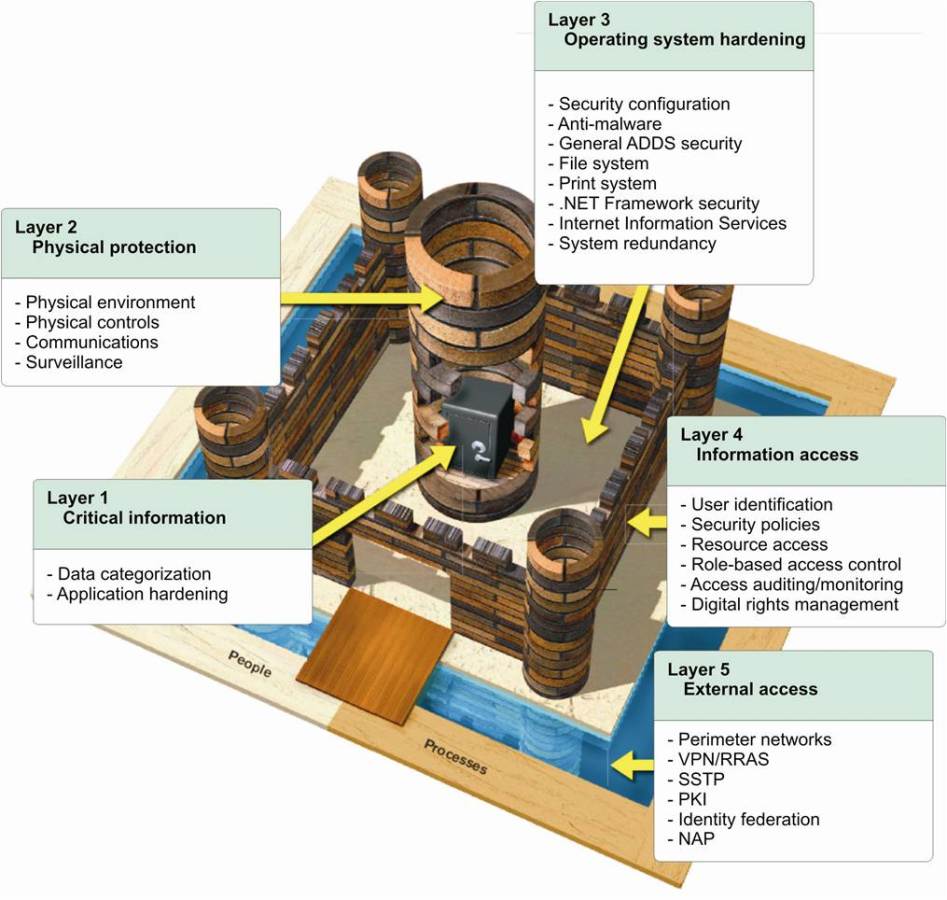Encryption is necessary after all, so the only discussions about this technology and these services should be about choosing a solution. When to comes to truly protecting data, encryption is a no-brainer. In fact, some industry regulations require that businesses and associations encrypt specific information. Health care is a great example of this, but organizations in...
The assumption that software security can stay ahead of the hackers is not true because the software security industry is always reacting to threats that hackers expose. Once hackers start exploiting a flaw in an application, security companies try to block the resulting threat by providing security updates for existing software or by developing new programs. Either...
By Joseph Steinberg CEO, SecureMySocial @JosephSteinberg For many years, information security professionals have discussed, and promoted, a strategy known as “Defense In Depth,” in which an organization utilizes multiple layers of security controls rather than just one layer, with the hope that if some vulnerability exists in one of the layers, the...
By Joseph Steinberg CEO, SecureMySocial @JosephSteinberg Many businesspeople put their firms’ data at risk because they fail to understand several important concepts about encryption. Simply understanding that data can be protected from unauthorized parties by encrypting it is insufficient to deliver security; in order to secure information people must know when...
Data Masking/Tokenization/Anonymization replaces sensitive information with fictitious data while retaining the original data format. The data masking process lets you continue to work with your data as if it were not encrypted. Databases, business applications and collaboration software continue to work as if the data was real, but unauthorized personnel only have...
September 19, 2017
Leave a comment
Compliance,
Data Masking,
data residency,
Tokenization
By Wael Aggan
If you don't have anything to hide, then why would you object if the police come to your home to search and take pictures of your documents without your permission? Unfortunately for you as a consumer, the discussion regarding data protection is often focused on corporations and what they can do to prevent hackers from accessing mission-critical communications and...
The government want the ability to conduct surveillance on encrypted communications. No matter how much law firms invest in data loss prevention and information protection, the government wants to be able to access private, personal and corporate data whenever it wants. The Washington Post reported that for months now, federal law enforcement agencies and other...
This article is the third in a series that discusses data breach threats and possible solutions. The first two articles, “What You Need to Know,” and “Threats and Consequences,” make it clear that businesses need to take action to reduce data breach risks. The current article presents encryption as a possible solution but details what type of encryption is needed to...
Data manipulation could mean disaster for corporations, health care providers, national security agencies and individuals around the world. Businesses and consumers both invest time and money into securing private information, but too often, the focus is on preventing hackers from accessing data and therefore ensuring that sensitive information, trade secrets and...
Data Masking as a Solution to Password Weaknesses Password-based data protection is the most common form of data protection, but it is increasingly weak. If you think your data is secure because your organization insists on strong passwords, you are increasingly likely to be wrong. Better software tools running on powerful processors can try millions of character...
February 09, 2017
Leave a comment
New Security Paradigm,
Breach,
Password,
Data Masking,
data privacy,
cyber threats
By CloudMask Team










